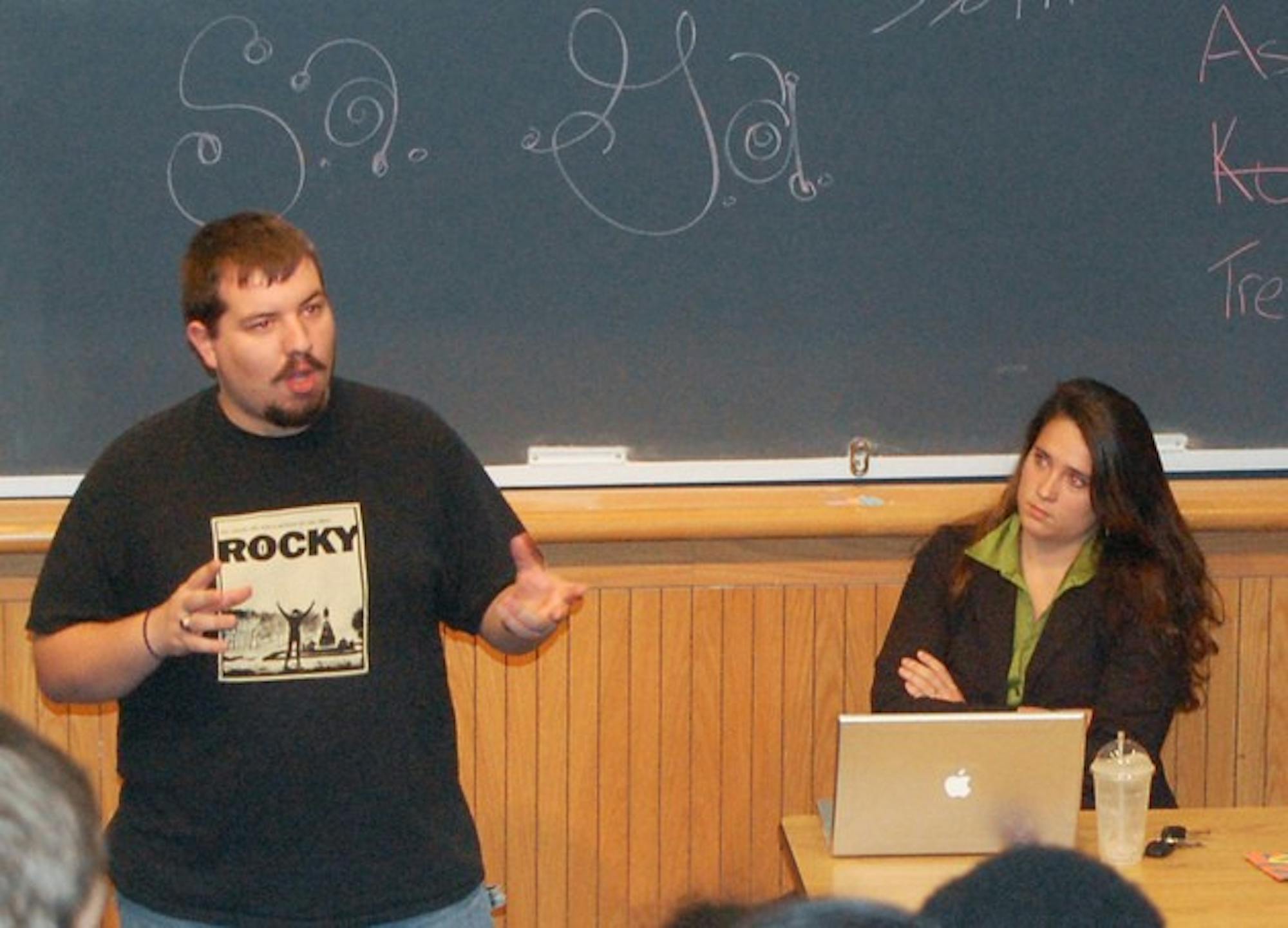DartAlert emergency notification system will test the system's ability to alert the Dartmouth community via e-mail, the school's web page and campus telephones, Mark Wilson '09, the MIR3 College Committee representative, said at the general meeting of the Student Assembly meeting Tuesday. The test alerts will likely slow down e-mail and shut down campus landline telephones, he said. Phones will remain active for emergency calls.
DartAlert is a new system designed to notify the campus in the event of an emergency, in which case one of the DartAlert administrators initiates a notification through MIR3, the company that will operate DartAlert, Wilson said. The system will then notify the campus.
As the system is currently in its initial phase, the only telephones that will be alerted will be those in the College's system, according to Roland Adams, Dartmouth's director of media relations. If the campus continues to use the MIR3 system, a second phase will allow notifications to be sent to a registry of telephone numbers, rather than only Dartmouth lines, Adams said. This will allow for student cell phones and phones in Greek and other off-campus housing to receive alerts as well.
Dartmouth already had the ability to send mass e-mails in an emergency, but the new system allows the College to reach other media as well, according to Adams.
"We're starting with landlines, but hopefully we can expand," he said.
The alert system could be used for a range of possible emergencies that affect the entire campus, including natural disasters and violence on campus, Adams said.
Also at the Assembly meeting, Assembly President Molly Bode '09 read aloud a letter she wrote in response to the new Alcohol Management Program, proposed by the Office of the Dean of the College earlier this term. The letter thanked the committee that drafted the AMP proposal, but also highlighted several problems with the new alcohol policy.
"We believe that the lack of ability to register events on the fly is a serious problem that must be addressed," Bode said in the letter.
Bode also addressed concerns regarding the policy's potential effects on meetings of Greek organizations. The AMP mandates that organizations register all events with more than 30 attendees, regardless of whether the events are members-only. Under AMP, most Greek organizations would have to register weekly member meetings, and would therefore be subject to Safety and Security walkthroughs during them.
Student Assembly recommended that the policy explicitly address the use of alcohol in non-Greek organizations in order to "ensure continued alternative social events away from the Greek system," the letter said.
In light of the new policy's decreased regulations on hard alcohol, Student Assembly also suggested "strengthened training of students concerning the serving and use of alcohol," according to the letter. This would include safety procedures and in-depth training for students serving alcohol, the letter said.
In response to the letter, Assembly members expressed concern over AMP's requirement that those who serve alcohol be over age 21. Members conceded the possibility of legal ramifications for having minors serve alcohol and the futility of pressing the issue further.
Student Assembly also passed several pieces of legislation Tuesday. The Assembly will fund a microwave and shelf in Novack Cafe that will be available for student use.
In addition, the Assembly will sponsor a voucher program that will pay for laptop rentals for students who are having their computers repaired by the College. Assembly members discussed whether the program would be available to all students or just those who purchased their computers through the school, and agreed the issue should be looked into further.




